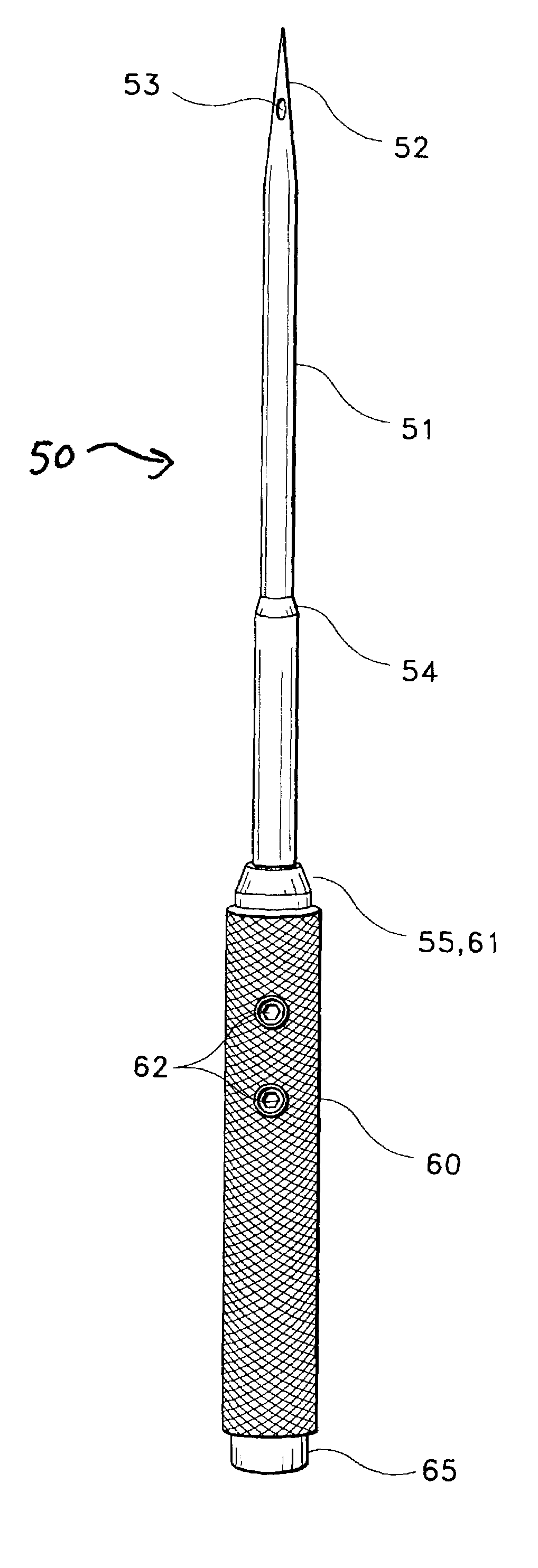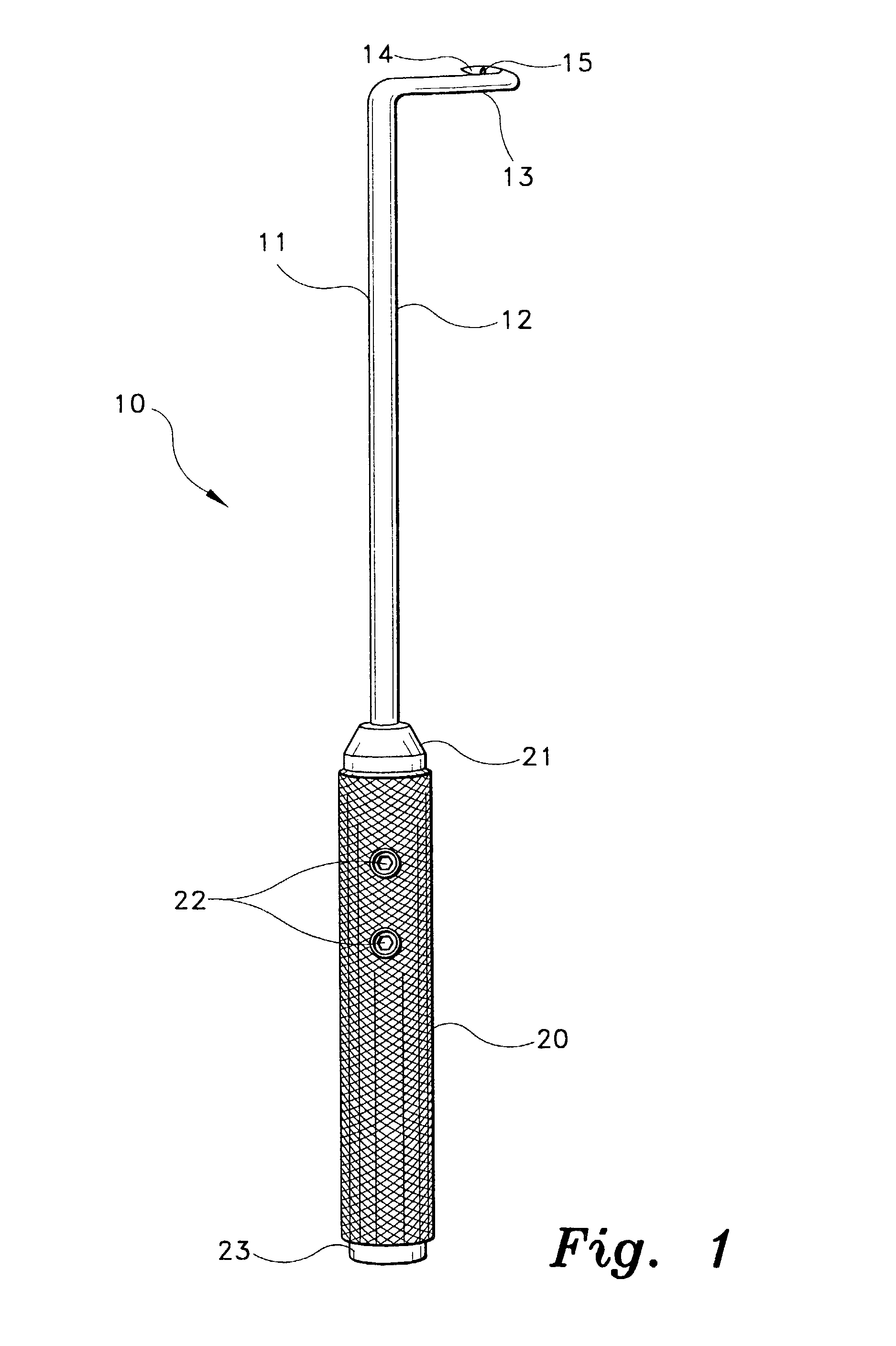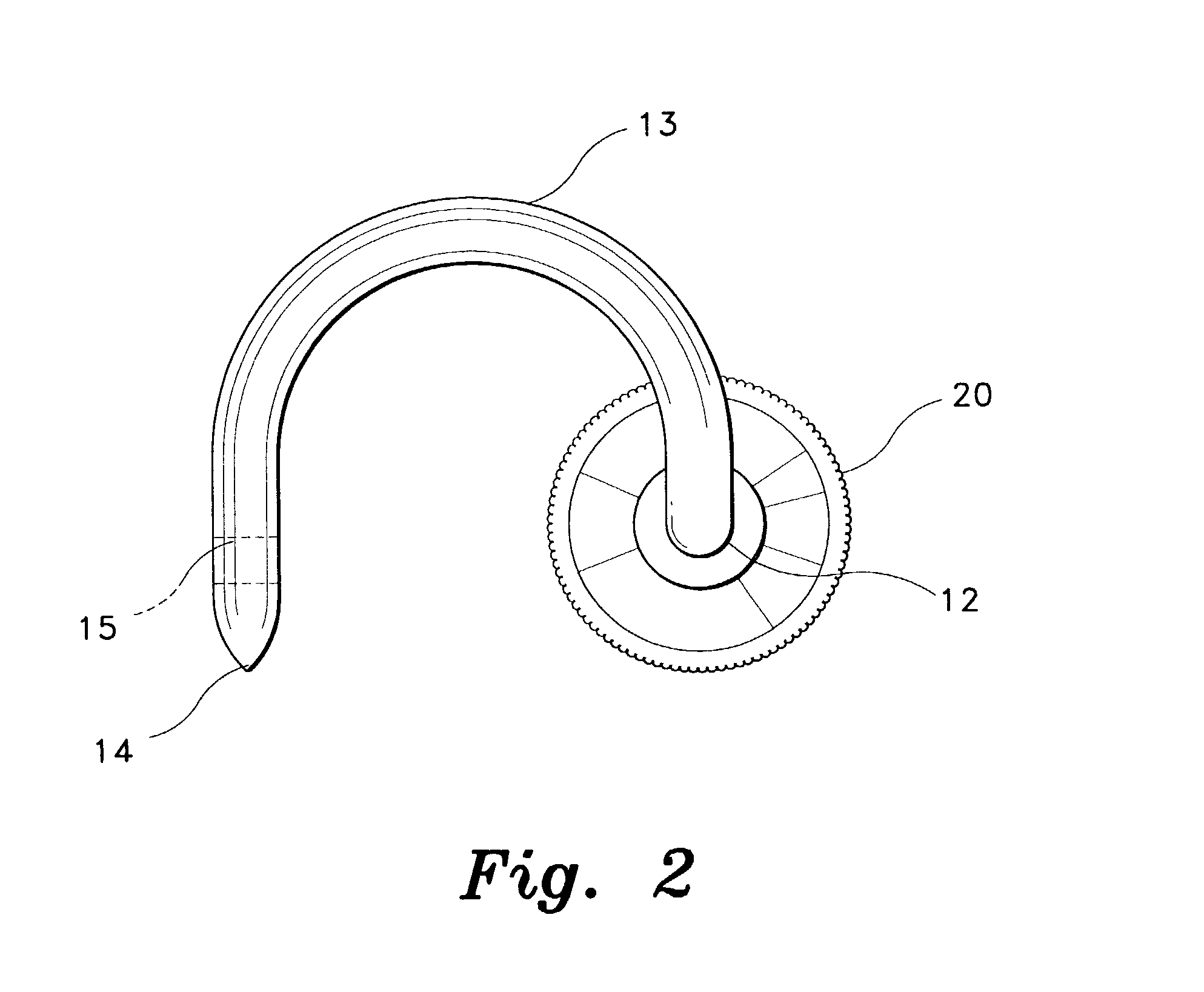Non-disposable trocar needle and handle
a trocar needle and handle technology, applied in the field of trocar needles, can solve the problems of increased risk of hernia through the site of the incision, difficulty in visualizing the needle and suture, and surgeons' inability to get their fingers into the incision to suture in a conventional manner
- Summary
- Abstract
- Description
- Claims
- Application Information
AI Technical Summary
Benefits of technology
Problems solved by technology
Method used
Image
Examples
Embodiment Construction
[0027]Referring to the drawings, FIGS. 1 through 4E illustrate a first embodiment of the present invention and FIGS. 5 through 8G illustrate an alternative embodiment of the present invention. FIG. 1 of the drawings presents an elevational view of a first embodiment of the trocar needle and handle 10 according to the present invention. It will be appreciated from the drawing that the device is comprised of two main subcomponents: a needle 11 and a handle 20. The needle 11, which extends from the proximal end 21 of the handle 20, has a shaft 12 and a tip 13. The shaft 12 is straight and is secured to the handle 20 by insertion into a bore 26 (shown in FIG. 3) defined in handle 20 and tightening two set screws 22 into the handle 20. The tip 13 of the needle 11 extends from the shaft 12 and is curved in a plane that is substantially perpendicular to the shaft 12. The end 14 of the tip 13 is formed to a sharp point. An eyelet 15 is located near the point 14 of the tip 13.
[0028]The handl...
PUM
 Login to View More
Login to View More Abstract
Description
Claims
Application Information
 Login to View More
Login to View More - R&D
- Intellectual Property
- Life Sciences
- Materials
- Tech Scout
- Unparalleled Data Quality
- Higher Quality Content
- 60% Fewer Hallucinations
Browse by: Latest US Patents, China's latest patents, Technical Efficacy Thesaurus, Application Domain, Technology Topic, Popular Technical Reports.
© 2025 PatSnap. All rights reserved.Legal|Privacy policy|Modern Slavery Act Transparency Statement|Sitemap|About US| Contact US: help@patsnap.com



